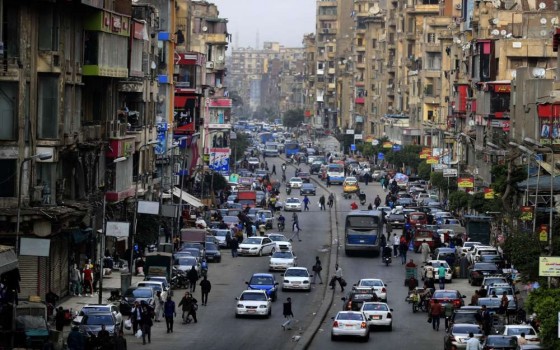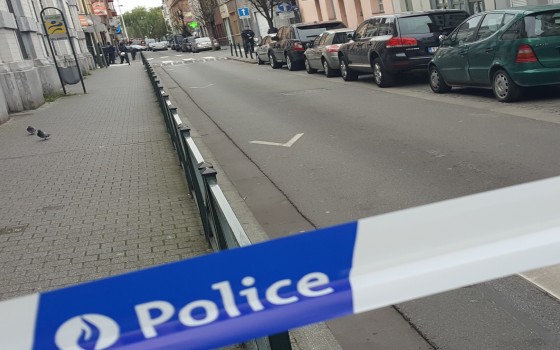The International Criminal Court responds to inquiries about the next step after the issuance of arrest warrants for Netanyahu, Galant and Al-Daif

- Europe and Arabs
- Saturday , 23 November 2024 8:45 AM GMT
The Hague - New York: Europe and the Arabs
Fadi Al-Abdallah, spokesman for the International Criminal Court, said that the issuance of arrest warrants against Israeli Prime Minister Benjamin Netanyahu, former Defense Minister Yoav Galant, and Hamas leader Mohammed Diab Ibrahim al-Masri (guest) means that the judges have found reasonable grounds to believe that these individuals are responsible for committing war crimes and crimes against humanity.
He explained in an interview with UN News that the court does not conduct trials in absentia and that the cases will remain in the preliminary stage until the suspects appear before the judges. He pointed out that the International Criminal Court does not have police or military forces to implement arrest warrants, and that it relies on the cooperation of member states of the Rome Statute (the treaty that established the court).
Al-Abdallah stressed that the judges apply the law impartially according to the evidence presented to them, and do not take into account any political statements or other factors. He said that serving the victims is a fundamental axis of the work of justice and a necessity to ensure that the vicious circle of violence, revenge and war does not continue. The statements were as follows:
The Pre-Trial Chamber of the Court issued decisions regarding three arrest warrants for three suspects. This means that the judges considered that there are reasonable grounds to believe that these people are responsible for war crimes and crimes against humanity. After an arrest warrant is issued, the Court communicates with the countries in whose territories the wanted persons are located in order to request their cooperation in arresting these people and handing them over to the Court. Which do not have police forces or military forces and rely on the cooperation of states. Member states that have joined the Rome Statute, which is the treaty that established the Court. These states have a legal duty to cooperate with the Court according to Chapter IX of the Rome Statute. Non-member states that have not joined the Rome Statute are not obligated to cooperate, but they can cooperate with the Court voluntarily if they wish.
There are currently 124 states that have joined the Rome Statute and soon there will be 125 states that have joined this treaty. This means that these countries have accepted to create a legal obligation or legal duty to cooperate with the court in accordance with Chapter IX of the Rome Statute, and as I mentioned, it is a chapter that provides the legal framework or legal channel for cooperation between the court and member states.
There are many aspects of the court's work that require state cooperation, including those related to arresting suspects and those related to other matters, such as protecting witnesses, facilitating investigations, and so on. Of course, this also gives states the ability to communicate with the court and with judges if there are obstacles preventing the implementation of these orders, in which case the final decision on the matter rests with the judges of the court themselves.
It is perhaps worth noting that there are no trials in absentia before the court, which means that open cases remain in the preliminary stage until the suspects appear before the judges.
Arrest warrants issued by the court remain in effect unless the judges decide otherwise, and they do not expire by limitation. However, if the suspects do not appear, whether voluntarily or after their arrest, the cases remain in the preliminary stage and we cannot move to the trial stage. Trials are not in absentia before the International Criminal Court, which operates according to the principle of complementarity. This principle means that the responsibility lies primarily with the states and their judicial system to conduct prosecutions. However, if there are no serious and real prosecutions, in this case the International Criminal Court can intervene to ensure that justice is achieved for the victims within the legal framework, and when the legal conditions required for the court to operate are met. The court leaves the primary responsibility to the judicial system, provided that there are actual procedures by this national judicial legal system. As the prosecutor and the judges mentioned, the principle of complementarity is an ongoing matter and must be constantly evaluated. The judges said that their orders do not preempt any future requests or arguments that may be submitted regarding the jurisdiction of the court or regarding the principle of complementarity, what we call the admissibility of the case, so this issue can be considered at a later time.
The concerned states and persons can ask the International Criminal Court to stop the proceedings against them, but on condition that they provide evidence and proof of the existence of serious investigations and prosecutions before the national judiciary for the same persons and for the same criminal acts alleged before the International Criminal Court. In this case, matters are left to the national judicial system. However, if there are no prosecutions or if these prosecutions at the national judicial level are not serious, this does not preclude the jurisdiction of the court. In this case, the court must proceed with the procedures.
The judges apply the law. As for us, there is a task on our shoulders from the member states of the Rome Statute, which is to apply the Rome Statute as adopted by these states. The judges rule based on the rules in force and based on the evidence presented to them and do not take anything else into consideration.
Therefore, the court must apply the law. As for political statements or otherwise, this is something that the court cannot engage in because it is a court, that is, a purely judicial body. The court, of course, relies on the support of the member states of the Rome Statute because they are the ones who established this court and gave it this task, and we must adhere to this framework.
I think that the first point is the application of the law. The law must apply to everyone according to the terms of jurisdiction that govern the court's work system, but within these terms, the law must be applied fairly in all cases. Judges cannot take into account anything other than the applicable law and the arguments and evidence presented to them.














No Comments Found